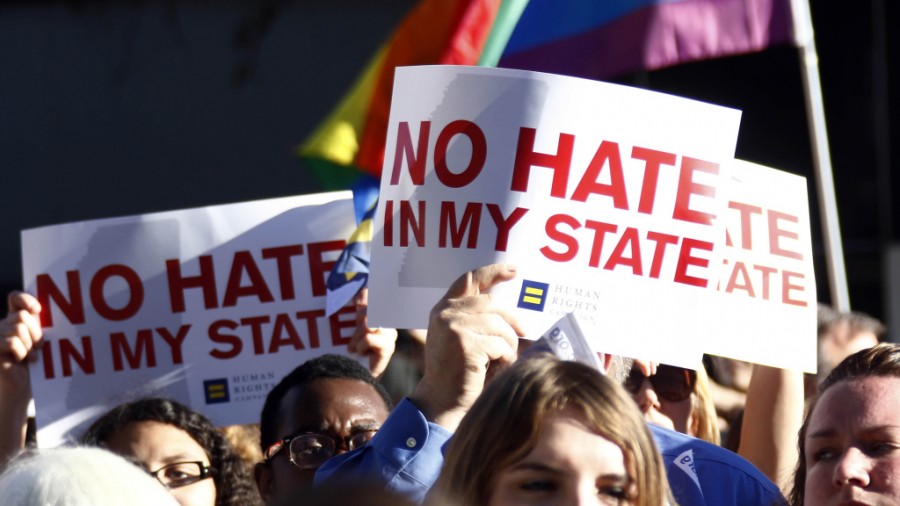Mississippi Passes Religious Freedom Bill
April 21, 2016
Recently, Mississippi governor Phil Bryant signed a controversial religious freedom bill, a piece of legislation that gay rights groups and the state’s businesses have condemned as discriminatory. Protesters urged the governor not to sign the bill because they say it enables discrimination of gay, lesbian, bisexual and transgender (LGBT) people.
According to CNN.com, Bryant said he signed the bill into law “to protect sincerely held religious beliefs and moral convictions of individuals, organizations and private associations from discriminatory action by state government.”
The legislation does not challenge federal law — “even those which are in conflict with the Mississippi Constitution”, he said. Under this bill, called HB 1523, Mississippi was able to skirt around the law, allowing religious organizations to deny LGBT people marriage, adoption and foster care services; fire or refuse to employ them; and decline to rent or sell them property. The law specially protects religious opposition to same-sex marriage, extramarital sex, and transgender people.
The legislation is to go into effect July 1.
Many groups have stood up, protesting while denouncing the bill as discriminatory. These groups include ACLU, Human Rights Campaign and Southern Poverty Law Center, that all protested outside the governor’s mansion. Many corporations have also denounced the bill such as Nissan, Toyota, Tyson Foods, AT&T, IBM and Levi Strauss & Co. According to Atlanta lawyer and legal analyst Page Pate, the one part of the bill that causes conflict is HB 1523 would allow for religious organizations to deny housing to unmarried couples which clash against the federal housing laws.
Despite the purpose of the bill, several faith groups are against it. Rabbi Stephen Wylen with the Beth Israel Congregation even states, “On a philosophical and religious level, I’m deeply disappointed that religion is being used as an excuse to validate prejudice and persecution. And even more than that, as an American, I am profoundly upset by what I consider to be a perversion of the First Amendment, which amounts to a reversal of the First Amendment.”
So far there have been many issues concerning the new bill passed in Mississippi which has faced much criticism and will need to face deep revision.


